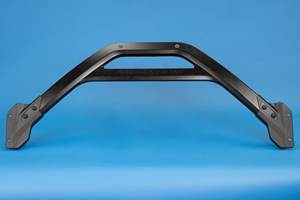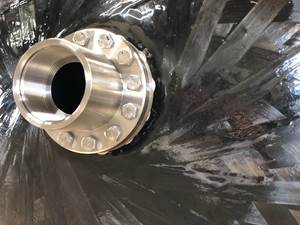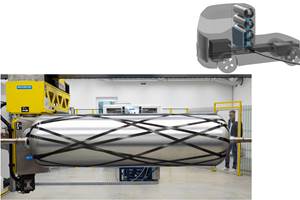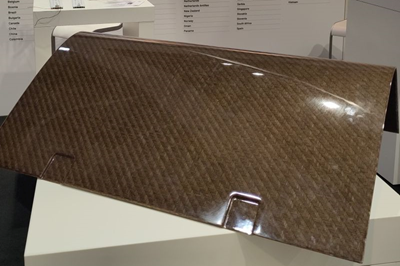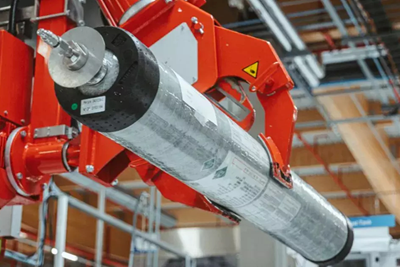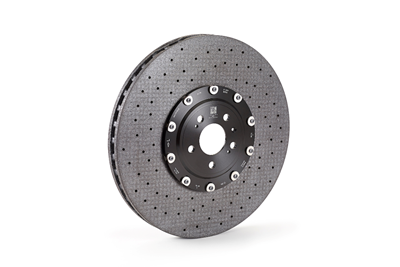Winners announced for SPE Automotive Innovation Awards
Eight category winners, the Hall of Fame award and the Vehicle Engineering Team Award and Lifetime Achievement Award winners were revealed at the Nov. 8 event.
Innovation Award winners: Mega bin/frunk (top left), battery module sideplates (middle left), seat module (bottom left), intumescent terminal covers (bottom middle left), thermoplastic splitgate (top right), battery disconnect unit (middle right), one-piece frunk (bottom middle right) and hybrid battery interconnect board (bottom right). Photo credit: SPE Automotive Division
The Society of Plastics Engineers (SPE) Automotive Division (Troy, Mich., U.S.) reveals the winners for its 52nd annual Automotive Innovation Awards Gala, chosen out of 28 finalists. The announcement was made on the evening of Nov. 8, at Burton Manor in Livonia, Mich., U.S. The Body Interior Category winner was also this year’s Grand Award winner. The Grand Award winner is selected from the winners of each of the eight award categories by a panel of industry-expert Blue Ribbon Judges. This year’s winners are:
Grand award and category winner: Body Interior
Mega Bin/Frunk
- OEM Make & Model: 2024 Ford Motor Co. Ford F-150 Lightning
- Tier Supplier/Processor: Cascade Engineering
- Material Supplier/Toolmaker: Celanese Corp. / Commercial Tool Group
- Material/Process: Celstran PP-GF40 AD3004 (PP-LFT 40%) / injection molding
By converting from compression molded painted sheet molding compound (SMC) to injection molded MIC LFT-PP to produce this large Class A composite frunk — currently the industry’s largest — mass was reduced 48%, productivity was increased owing to a 37% cycle time reduction, the cost and environmental burden of paint were eliminated, seal interfaces were improved, secondary routering of holes is no longer needed and the frunk is fully recyclable at end of life. A 4,000-ton injection press and a tool equipped with a 16-drop hot runner system are used to mold parts.
Category winner: Body Exterior
Thermoplastic Splitgate
- OEM Make & Model: 2023 Rivian LLC Rivian R1S
- Tier Supplier/Processor: Magna International
- Material Supplier/Toolmaker: Advanced Composites Inc. / Tycos Tool & Die Co.
- Material/Process: LGF-PP and TPO / injection molding
This is reported to be the world’s first all-thermoplastic split gate rear-closure system, which is delivered to the assembly line as a ready-to-install module. The complex, deep draw (>80 millimeter) design offers improved perceived quality at lower mass, NVH and cost versus metals, and is offered in a two-tone execution. By commonizing grades between the liftgate and the benchgate and focusing on sustainability, parts were reduced from nine to three, and only two materials are used (injection molded LFT-PP and thermoplastic olefin/TPO). The CHMSL and tail lamps were carried over from the pickup model.
Category: Materials
Battery Module Side Plates
- OEM Make & Model: 2024 General Motors Co. Chevrolet Corvette E-Ray
- Tier Supplier/Processor: Novares Group
- Material Supplier/Toolmaker: RTP Co. / Liberty Molds Inc.
- Material/Process: RTP 299 K X 138337 E Black / injection molding
By replacing metals with RTP 299 K X 138337 E Black Para material to injection mold the side plates for this battery module, extremely flat parts with high dimensional accuracy, stiffness and strength were achieved in a complex geometry. The high-modulus, creep-resistant FR polymer eliminated the need for compression limiters and electrical isolation films, yet withstood extreme pressures from cell expansion and met all mechanical requirements. Additionally, four components were reduced to one and many functional features were incorporated in the patented side plates that would not have been possible in metals. Mass was reduced by 37% and cost by 55%.
Category winner: Safety
Intumescent Terminal Covers
- OEM Make & Model: 2023 General Motors Co. Cadillac Lyriq and GMC Hummer
- Tier Supplier/Processor: Auto-Kabel Group/ Molded Precision Components
- Material Supplier/Toolmaker: Pyrophobic Systems Ltd. / NA
- Material/Process: Lithium Prevent 200 PVC / injection molding
A formulated flexible and intumescent PVC is designed to prevent arcing during thermal runaway events in high-voltage EV batteries. The high-temperature, high-voltage insulator is used to injection mold various terminal caps and barriers. Safety is increased during thermal runaway since the material maintains high dielectric strength, reducing arcing risk and ignition of gases, and forms a structured char barrier, helping reduce spread of fire from one module to another.
This year’s Vehicle Engineering Team Award (VETA) went to 2024 Chevrolet E-Ray and a team from General Motors Co. and its suppliers that developed the electrified, all-wheel drive (eAWD) sports car. Learn more about it here.
Kevin Pageau, owner and president of International Marketing Alliance, and a major contributor to the SPE Automotive Division Lifetime Awards Program, earned the 2023 Lifetime Achievement Award.
The Hall of Fame award went to acrylic rear lens, used on the 1948 General Motors Co. Cadillac Series 60, 61 and 62 models. The lens were made possible with the invention of polymethylmethacrylate (PMMA) by Dr. Otto Röhm in 1932, replacing ground glass and enabling a renaissance of new lighting designs for all OEMs.
The companies involved in developing the first acrylic rear lens include General Motors Co. (OEM); molder processor Fisher Body Division; and Röhm & Haas OHG, now known as Röhm GmbH, as the material supplier. General Motors accepted the SPE Automotive Hall of Fame Award on behalf of the original team that worked to develop this application.
Related Content
Automotive chassis components lighten up with composites
Composite and hybrid components reduce mass, increase functionality on electric and conventional passenger vehicles.
Read MoreInfinite Composites: Type V tanks for space, hydrogen, automotive and more
After a decade of proving its linerless, weight-saving composite tanks with NASA and more than 30 aerospace companies, this CryoSphere pioneer is scaling for growth in commercial space and sustainable transportation on Earth.
Read MoreCryo-compressed hydrogen, the best solution for storage and refueling stations?
Cryomotive’s CRYOGAS solution claims the highest storage density, lowest refueling cost and widest operating range without H2 losses while using one-fifth the carbon fiber required in compressed gas tanks.
Read More“Structured air” TPS safeguards composite structures
Powered by an 85% air/15% pure polyimide aerogel, Blueshift’s novel material system protects structures during transient thermal events from -200°C to beyond 2400°C for rockets, battery boxes and more.
Read MoreRead Next
Bcomp ampliTex fabric is incorporated into bus A/C panels
Proof of concept project leads to the manufacture of more environmentally responsible natural fiber-based bus panels by automotive supplier Eberspächer.
Read MoreForvia begins Type IV hydrogen tank rollout from mass production plant
From tank manufacturing to complete storage systems, the automotive technology company cites a mid-term capacity of 100,000 tanks per year.
Read MoreSGL, Brembo expand carbon ceramic brake disc production capacity
The Brembo SGL Carbon Ceramic Brakes (BSCCB) joint venture will increase Germany and Italy facility capacity by more than 70% for automotive manufacturers.
Read More

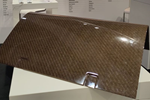
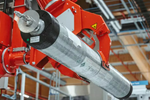
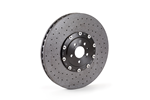
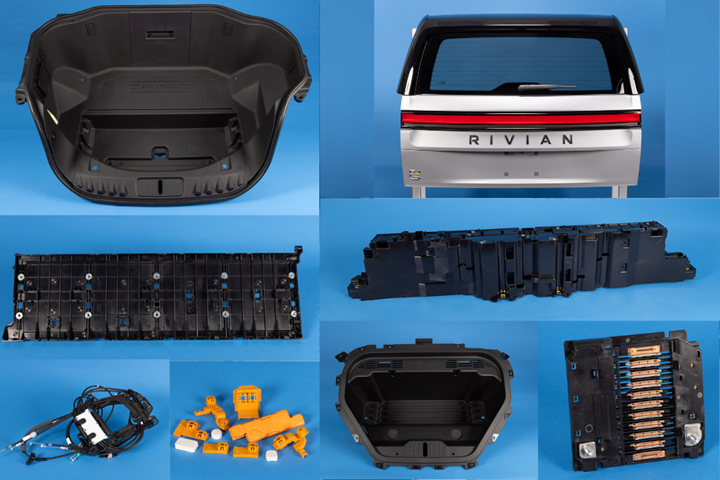









.jpg;maxWidth=300;quality=90)


